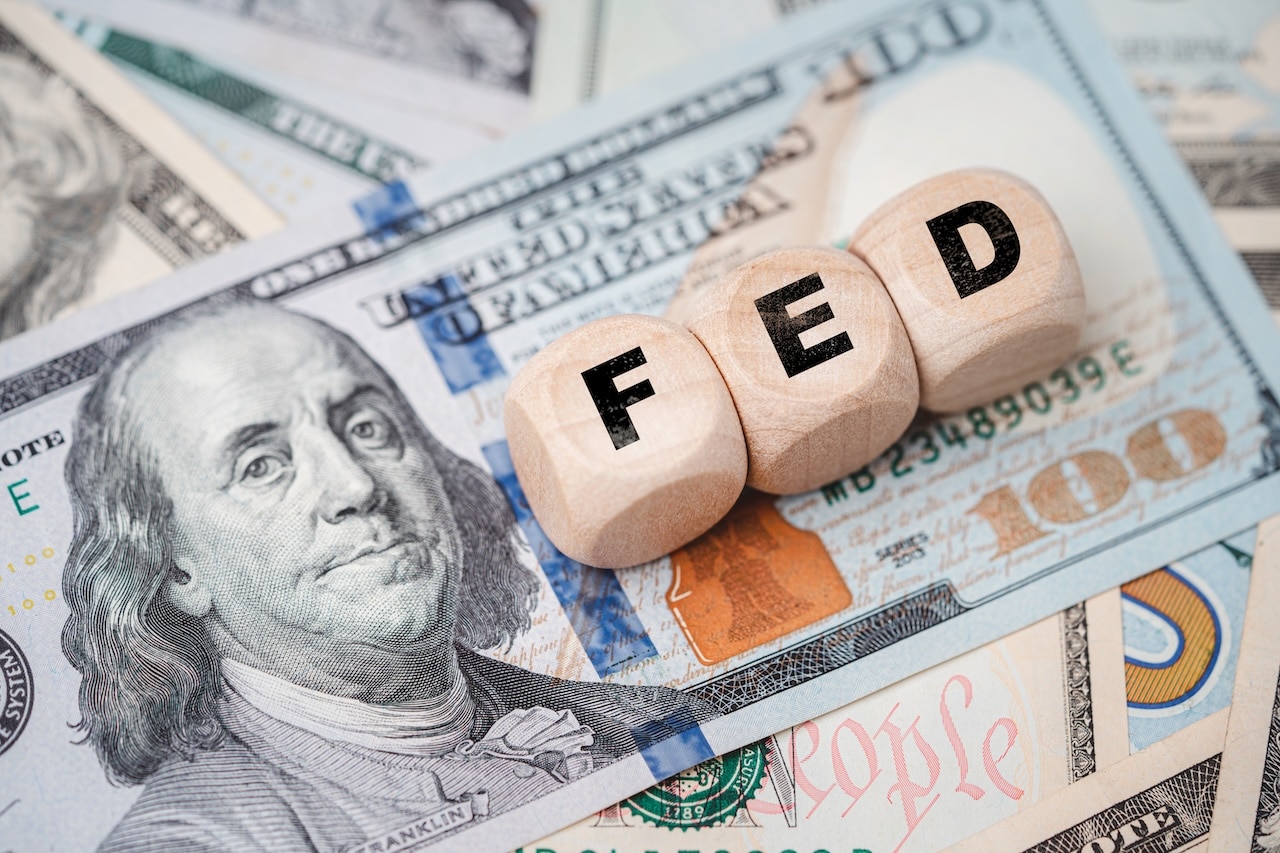Credit Sesame’s personal finance weekly news roundup July 1, 2023. Stories, news, politics and events impacting the personal finance sector during the last week.
- Fed Chair signals end is near for rate hikes
- Study finds credit card rewards hurt low-credit score customers
- GDP receives an unusually large boost
- Credit card delinquency rates pause after a big rise
- Less wealthy consumers used stimulus to pay down debt
- Mortgage processor fined for $2 billion in unauthorized charges
- Consumer confidence rebounded in June
- Mortgage performance improved
- Home price recovery continues
- Young adults still financially dependent on parents
1. Fed Chair signals end is near for rate hikes
While more rate hikes are likely still coming, Fed Chair Jerome Powell told a Senate Committee that “we’re at least close to where we think our destination is.” He added that future rate decisions would proceed “at a careful pace.” Powell’s Senate testimony confirmed what was indicated in economic projections released by the Fed after its last meeting. Those projections suggest that the Fed would raise rates by about half a point between now and the end of the year. That would mark a considerable slowing in the pace of rate hikes after the Fed increased rates by 5% since March of last year. See article at Reuters.com.
2. Study finds credit card rewards hurt low-credit score customers
New research from the Federal Reserve shows that credit card rewards programs cost customers with low credit scores more than they benefit from the programs. In contrast, people with high credit scores tend to get a net benefit from rewards credit cards. Super-prime customers, with credit scores of 780 or above earned an average of $9.5 in rewards for every $7.1% they paid in excess interest on rewards cards. Excess interest is the amount of interest over and above what they would have paid on an ordinary card. On the other hand, subprime credit card holders earned an average of only $1.8 for every $6.4 they paid in excess interest. See article at AOL.com.
3. GDP receives an unusually large boost
The Bureau of Economic Analysis routinely releases three gross Domestic Product (GDP): estimates, an advance estimate, a second estimate and a third estimate. The estimates routinely change slightly from one to the next, but those changes are generally within half of one percent up or down. However, this time around, the third estimate gave 1st quarter’s GDP an unusually large boost. The GDP estimate for the quarter was increased to 2.0%, an increase of 0.7% from the second estimate and 0.9% from the first estimate. The size of the change was attributed to upward revisions in exports and consumer spending. While 2.0% represents a slowing from the 4th quarter’s 2.6% growth rate, the economy is on more solid ground than previously thought. See full report at BEA.gov.
4. Credit card delinquency rates pause after a big rise
The average delinquency rate among six major credit card issuers was unchanged in May. However, delinquency rates were up significantly from a year ago. The average delinquency rate was 1.11%, a 40% increase from the average of 0.79% a year ago. Those delinquency rates range widely from a low of 0.63% for American Express to a high of 1.48% for Capital One. See details at SPGlobal.com.
5. Less wealthy consumers used stimulus to pay down debt
A new Federal Reserve Bank of New York study found that the amount of liquid wealth consumers had affected how they used their COVID stimulus checks. Those with less liquid wealth relative to their incomes were more likely to use the checks to pay down debt. On the other hand, those with more liquid wealth were more likely to spend the money on new consumption. See study at NewYorkFed.org.
6. Mortgage processor fined for $2 billion in unauthorized charges
The Consumer Finance Protection Bureau (CFPB) has fined ACI Worldwide $25 million for erroneous charges. Mortgage customers were charged $2.3 billion by mistake due to a botched test of a new bill payment platform. The CFPB says that ACI Worldwide, operating under the name “Mr. Cooper,” improperly used actual customer information rather than dummy data to test the system. This violated ACI’s own policies. Nearly half a million mortgage customers were affected. The erroneous transactions have since been reversed. See article at PYMNTS.com.
7. Consumer confidence rebounded in June
The Conference Board’s Consumer Confidence Index rose by 7% in June. Components of the Consumer Confidence Index based on present and future conditions showed substantial increases. The Present Situation Index rose by 4.3% in June. The Expectations Index rose by 10.9%. The Expectations Index has been at a level that usually forecasts a recession almost continually since February of 2022. However, the Expectations Index moved to within 0.7 of breaking out of that pessimistic range. See details at Conference-Board.org.
8. Mortgage performance improved
New figures from the Office of the Comptroller of the Currency, a bank regulator, showed that a higher percentage of mortgage payments were up-to-date in the first quarter of 2023. 97.6% of mortgages were current on payments in the first quarter, compared to 97.1% in the last quarter of 2022. This was also an improvement from a year ago when 96.9% of mortgages were current. The percentage of seriously delinquent mortgages was 1.1%. This is down from 1.3% in the previous quarter and 1.8% a year ago. See news release at ABA.com.
9. Home price recovery continues
After slumping for seven straight months, home prices have now rallied for three months in a row. As a result, home prices are only 2.4% below their peak reached in June of 2022. The S&P CoreLogic Case-Shiller US National Home Price Index rose 1.3% in April and is now down by 0.2% year-over-year. Miami, Chicago and Atlanta were the biggest gainers over the past year, with Miami leading the way with a 5.2% increase. Seattle and San Francisco dropped the most of the 20 metropolitan areas studied. Seattle suffered the most with a 12.4% 1-year decline. See details at SPGlobal.com.
10. Young adults still financially dependent on parents
A new Experian study found high percentages of Gen Zers and millennials still depend on their parents for financial support. 61% of Gen Zers and 47% of millennials said they were either somewhat or very financially dependent on their parents. 70% of millennials said they felt shame when asking for financial help. Part of the problem is impulse control. 57% of the combined group said they had difficulty resisting impulse buying. 61% said they prefer spending money on short-term experiences rather than retirement savings. See news release at Experian.com.




















